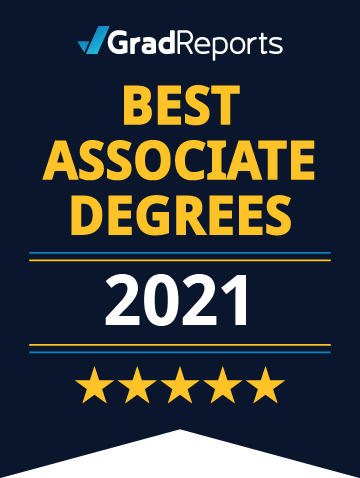2021 Best Colleges for an Associate Degree by Salary Score™
Every year, students across the country enroll in associate degree programs to advance their careers and earn higher salaries. To help students maximize their investment in higher education, we’ve created a comprehensive ranking list that highlights schools whose alumni earn higher salaries overall. We rank schools by our proprietary Salary Score based on alumni earnings in the first year after graduation. The scores reflect how much alumni make compared to alumni of the same programs at other colleges, and take into account student enrollment in each program. These rankings are intended to highlight strong colleges that prepare students for a high-paying career, regardless of their major. Each of the schools on our rankings list must offer and provide data for at least five associate programs. Read our methodology to learn more.
After evaluating alumni salaries at the associate degree level at nearly 700 community colleges, technical colleges, and other institutions, we found that 87% of the top 100 schools are public colleges. California graduates performed especially well, with eight of the top 25 colleges located in California.
Associate degrees are a popular option for adult learners looking to earn their first credential, students with specific career goals, or students who want to save money, either on their degree or the first two years of their undergraduate education.
Tuition, median salaries, and median debt were reported by the U.S. Department of Education in November 2019. View our methodology for more details about these rankings or read more about the top-ranked schools.
KEY INSIGHTS:
- 87% of the top 100 schools offering associate degrees are public colleges
- The median Salary Score for public nonprofit colleges is significantly higher than the score for for-profit colleges (14.94 points higher)
- New Hampshire graduates fared especially well with an associate degree — while the state is close to the national average for cost of living, it came in second for associate degree alumni salaries, with a median Salary Score of 72.27
What are the top five states for an associate degree?
The top five states for alumni salaries at the associate level are Hawaii, New Hampshire, California, Minnesota, and Connecticut. Many graduates, especially those in community and technical colleges, attend school in the state where they live and work. We found that states with a higher cost of living generally had higher graduate salaries.
Top Five States for Alumni Earnings at the Associate Degree Level
| State | Cost of Living Index* | Median Salary Score™ |
|---|---|---|
| Hawaii | 196.3 | 75.40 |
| New Hampshire | 108.2 | 72.27 |
| California | 138.5 | 72.11 |
| Minnesota | 101.2 | 72.07 |
| Connecticut | 125.1 | 71.82 |
Cost of Living by State Source: Missouri Economic Research and Information Center
As the most expensive state to live in, it’s no surprise that Hawaii has the highest median alumni salaries overall for those who earn associate degrees. However, Hawaii did not rank in the top five states at the bachelor’s or master’s levels.
The second-highest median graduate salaries came from schools in New Hampshire, which may be surprising considering that the state’s cost of living is just over the national average. California, the state with the third-highest cost of living, was also ranked third for alumni salary, with a median Salary Score of 72.11.
While living expenses in Minnesota represent the national average, the state had the fourth-highest alumni salaries for associate degree holders. Connecticut came in fifth for alumni earnings and is the ninth most expensive state in the country.
Schools with a lower Salary Score are generally located in Southern states with a lower cost of living, which is likely why graduates from these schools were often paid less.
What are the best private colleges for associate degrees based on Salary Score™?
Institutions that offer associate degrees are often public community and technical colleges, but some traditional universities and private institutions also offer two-year degrees. While 87% of the top institutions for associate degree salaries were public schools, eight private colleges and universities made the top 25 list.
Top Five Private Colleges for Associate Degree Salaries
| Private Colleges Rank | Overall Rank | School Name | Salary Score™ |
|---|---|---|---|
| 1 | 4 | 96.60 | |
| 2 | 7 | 94.05 | |
| 3 | 8 | 93.32 | |
| 4 | 12 | 92.29 | |
| 5 | 15 | 90.51 |
Most notably, the top five private colleges based on associate Salary Score all offer established online programs. These programs are often geared towards working adults with a focus on flexibility and affordability.
Indiana Wesleyan University (IWU) held the top spot for private schools at the associate level, with a Salary Score of 96.6. IWU is a Christian university and offers a range of online and in-person Associate of Science programs. The school serves 13,285 students both online and on several campuses in Indiana, Ohio, and Kentucky.
Columbia Southern University (CSU) and the American Public University System (APUS) came in second and third for private schools. Both are for-profit private institutions, which may be surprising considering the stigma surrounding for-profit schools.
For-profit institutions have long been associated with poor student outcomes, including low completion rates and high loan default rates. However, they’re often more flexible and offer short-term options that appeal to working adults. These rankings can be used to identify schools whose alumni earn higher salaries for those interested in attending for-profit institutions. Other factors such as graduation rates, academic and career support, and accreditation should also be considered when evaluating education options.
Columbia Southern University is an online institution with associate degree programs in business, criminal justice, emergency medical services, fire science, general studies, health, and occupational safety. The university has 20,000 enrolled students.
APUS includes two fully online schools: the American Military University, which is geared towards military members, veterans, and their families, and the American Public University. Both schools primarily serve working adults. Together, the schools serve more than 86,000 students.
Columbia College came in fourth for private schools with a Salary Score of 92.29. Nearly 40,000 students are enrolled online and in person at more than 30 campus locations nationwide.
Southern New Hampshire University Online (SNHU) was ranked fifth for private institutions, with a Salary Score of 90.51. This private nonprofit school is well known for its robust presence in the online education space and serves more than 135,000 students online.
How does Salary Score™ stack up in terms of public, private, and for-profit?
Overall, public nonprofit colleges and universities produced graduates who earned higher salaries, with a median Salary Score of 50.88. Graduates who attended private nonprofit institutions fared slightly worse, with a median Salary Score of 47.21. Alumni who attended private for-profit institutions earned the lowest salaries in their first year after graduating, with a median Salary Score of 35.94.
| Profit Status | Public/Private | Median Salary Score™ |
|---|---|---|
| Nonprofit | Public | 50.88 |
| Nonprofit | Private | 47.21 |
| For-Profit | Private | 35.94 |
Best Associate Degrees by Major
Best Certificates by Major
2021 Best Associate Degrees Highlights

Founded in 1935, the City College of San Francisco (CCSF) is a large public community college with 11 centers located throughout the city of San Francisco. CCSF offers over 250 degrees and certificates in the arts, business, communication, education, health, science, social justice, and vocational trades.
CCSF students who have established residency in California and live in San Francisco are eligible for free tuition through the Free City program. The institution awards scholarships to qualified students in areas such as academic achievement, athletics, and the arts. According to the National Center for Education Statistics, 37% of undergraduate students at CCSF receive institutional grants or scholarships. Tuition payment plans are also available. The Career Services office helps students with internship and job placement and provides career coaching services. City College also offers targeted programs to help underrepresented students succeed. Some of the resources provided include the Multicultural Retention Services Department (MRSD), the Guardian Scholars Program, City DREAM, and the Homeless At-Risk Transitional Students (HARTS) Program.
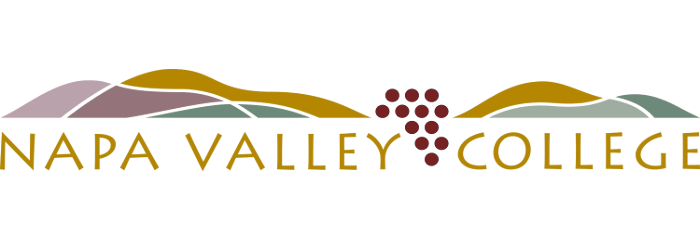
Napa Valley College (NVC) has been providing college preparatory, technical, and vocational training for students since 1942. Located in the Napa Valley's wine-producing region, this medium-sized public college sits on a 160-acre campus overlooking the Napa River. The National Center for Education Statistics reports that approximately 5,300 students are enrolled in associate and certificate programs in more than 45 areas of study, and the school has a student-to-faculty ratio of 18:1. An on-campus winery provides instruction for students learning viticulture and winery technology, and performing arts students gain real-life experience in the campus performing arts center. More than 100 courses are also offered through distance learning.
NVC offers a variety of financial aid options, including grants, work-study programs, and scholarships, such as NVC Foundation scholarships. Incoming first-year students may be eligible for the merit-based Napa Valley College Promise two-year program, and veterans may qualify for aid through the GI Bill. Student services include career advising and job placement assistance for graduates. There is also a veterans' resource center and an on-site child care center.
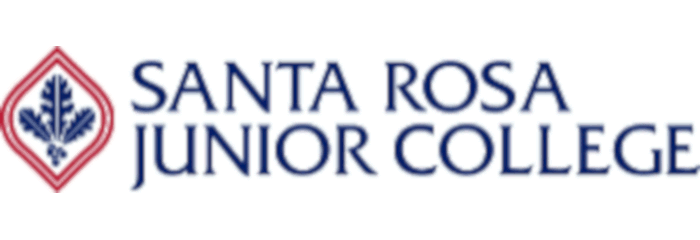
Founded in 1918, Santa Rosa Junior College (SRJC) is located 52 miles north of San Francisco. The campus is home to a theater, art gallery, planetarium, and multicultural museum. A large, public school with more than 19,000 students, SRJC offers Associate of Arts and Associate of Science degrees, as well as certificates, in more than 100 areas of study. Nine degrees in subjects such as history and psychology are offered in both 100% online or on-campus formats. Another 26 degrees in fields such as economics, political science, and agribusiness are offered in a hybrid format. Some of the on-campus-only programs include wine science and automotive technology.
SRJC students are encouraged to apply for external scholarships, grants, and loans. According to the National Center for Education Statistics, more than 8,800 undergraduate SRJC students earned grants or scholarships and nearly 3,100 were awarded Pell grants in the 2018-19 school year. SRJC offers a number of support services for traditional and online students, including a career hub and academic tutoring. Online students also have access to an online readiness orientation and student success coaches. Veterans may qualify for financial aid and other services.
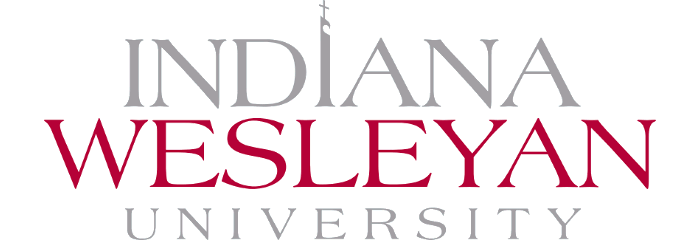
Celebrating its 100th anniversary in 2020, Indiana Wesleyan University (IWU) is a private, nonprofit, four-year university grounded in the principles of the Wesleyan Church. IWU's main campus in Marion, located in a rural part of Indiana between Indianapolis and Fort Wayne, is home to about 3,000 students. The school also operates 14 regional educational centers in Indiana, Ohio, and Kentucky. An additional 7,000 undergraduate students are enrolled in IWU National & Global distance learning courses. At the Marion campus, students can choose among 10 associate degree programs in subjects ranging from Christian ministries to biology and computer science. More than 20 associate degrees are available through IWU's online platform, including many integrative studies degrees in business, communications, natural sciences, and more.
Both on-campus and online students at IWU are eligible for financial aid in the form of scholarships, grants, and loans. According to the National Center for Education Statistics, 100% of full-time, beginning undergraduates at IWU received grants or scholarships in 2018-2019, with an average award of nearly $16,900 per person. IWU also offers military preferred (discounted) tuition for active duty, veteran, and related students. All students can also take advantage of career development resources.

Many of Coastline Community College's nearly 11,000 students are pursuing their degrees online, while others attend classes at one of three small campuses located in Orange County, California. At this two-year public college founded in 1976, students can choose among 30 different Associate of Arts and Associate of Science degrees in 18 areas of study, including gerontology, child and adolescent development, and taxation. Before choosing a major, Coastline encourages prospective students to use their career assessment tool.
Coastline students, including veterans, may be eligible for a variety of scholarships, grants, and loans. Select first-time students may also meet the criteria for California College Promise (AB19) funding, which entitles recipients to tuition-free classes for two years plus a $500 stipend per semester. Altogether, the National Center for Education Statistics reports that 79% of Coastline's full-time, beginning undergraduates received grants or scholarships last year, with an average award of almost $4,500 per person. A computer loan program and student success center are among the other student services provided.
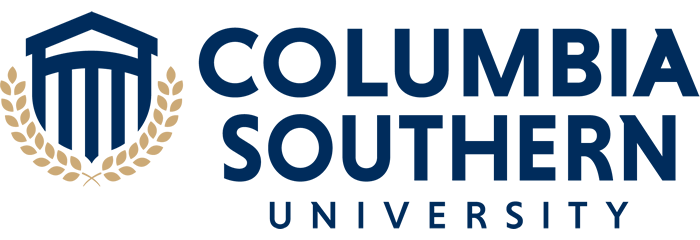
Since its inception in 1993, Columbia Southern University (CSU) has provided higher education exclusively through distance learning. Today, students can opt for one of eight Associate of Science and Associate of Arts degrees in seven areas of study, including criminal justice, occupational safety, and fire science. This private, for-profit university currently has more than 14,350 undergraduate students enrolled in online degree programs.
Beyond the standard government scholarship, grant, and loan options, CSU students may be eligible for school-sponsored financial aid programs. CSU provides a number of need- and merit-based scholarships and has organized more than 2,500 learning partnerships with various organizations. According to the National Center for Education Statistics, 94% of full-time, beginning undergraduate CSU students received some form of financial aid in the 2018-19 school year, with an average grant or scholarship award of about $3,550. The school also offers a generous transfer credit program and provides several different payment plans. Active-duty military and veterans may be eligible for a range of additional aid programs. Career development guidance, an online library, and math and writing assistance are among the services available to all CSU students.
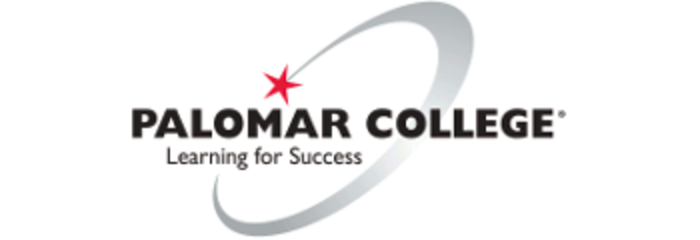
Palomar College is a large public community college founded in 1946 in San Marcos, California, about 30 miles north of San Diego. Palomar's 30,000 students are enrolled in one of more than 200 associate degree or certificate programs across five academic divisions, including associate degrees in computer science and information systems, engineering, cinema, and child development.
The college offers a range of scholarships in addition to the Palomar Promise, a program that waives tuition and fees for first-time college students who reside in California. A dedicated Transfer Center helps associate degree students continue their higher education after graduation. Counselors in this center consult with Palomar students on choosing a school and major. They have extensive knowledge of the transfer requirements for schools in the San Diego area as well as the University of California and California State University systems. Current enrollees can meet with a counselor in the Career Center to pursue jobs and internships.
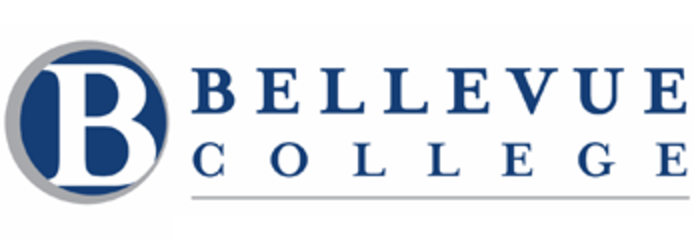
Bellevue College is a large public college established in 1966 in Bellevue, Washington. Located just a few miles from large tech companies like Microsoft and Expedia, the institution offers more than 30 associate degrees in arts, sciences, and applied sciences. Some of Bellevue's associate degrees are intended to seamlessly transfer into a bachelor's degree program, in line with Washington's Intercollege Relations Commission (ICRC). Other degrees are designed for students seeking credentials in a specific profession, such as accounting or neurodiagnostic technology. Bellevue’s 27,000 students attend classes on a quarterly basis: 11 weeks each for fall, winter, and spring, plus a condensed summer term. Most classes are only offered on campus, but three associate degree programs offer some of their courses online.
Eligible students can apply for the Bellevue College Foundation Scholarship to help fund tuition and fees — 192 scholarships were awarded for the 2020-2021 year. Bellevue’s Connect! program provides students with convenient online access to job and internship information, including connections to the college’s alumni network.
